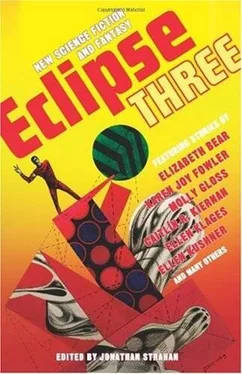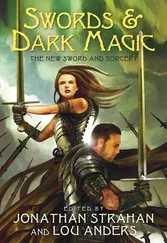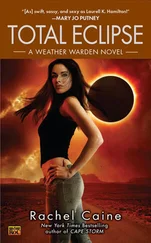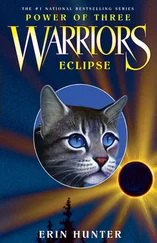Today the window of Dr. Zelda's held atop russet velvet cushions the fall 2010 models from Abimbola, von Storch, Tater Innovator, Xun Fun, Charalambos and many other makers. There were small pendant models, big two-handed transverse models and the mammoth three-chambered types. Materials ranged from traditional ceramics to modern polycarbonates, and the surface decorations represented an eye-popping decorative range from name designers as varied as Fairey, Schorr and Mars.
Piped from outdoor speakers above the doorway came the latest ocarina hit, debuting on the Billboard charts at Number Ten, a duet from Devandra Banhart and Jack Johnson, "World Next Door."
Tug himself was a ham-fingered player at best. But his lack of skill did not deter his covetous admiration of the display of instruments. But after some few minutes of daydreaming fascination, he turned away like a bum from a banquet.
Simply another thing he couldn't afford just now.
3. Unplanned Obsolescence
The Art Vrille movement that had swept the globe in the 1920s and 1930s had left behind several structures in Carrollboro, not the least of which was the Little Theatre. An ornate music-box of a structure, it had plainly seen better days, with crumbling stucco ornaments, plywood replacement of lapidary enamelled tin panels, and a marquee with half its rim's lightbulbs currently missing.
Today, according to that marquee, the Little Theatre was running a matinee in one of its four rooms, subdivided from the original palace-like interior: a double feature consisting of Diana Dors in The Girl Can't Help It and Doris Day in Gun Crazy. Tug had seen both films many times before, and was glad he wasn't the projectionist for them. Tonight, though, he anticipated his duty: screening the first-run release of Will Eisner's The Spirit. Early reviews had Brendan Fraser nailing the role.
Tug tracked down Pavel Bilodeau in the manager's office.
The short, mid-thirtyish fellow-casually dressed, blond hair perpetually hayricked, plump face wearing its default expression of an elementary-school student subjected to a pop quiz on material unmastered-was busy behind his desktop ordinateur, fingers waltzing across the numerical keypad to the right of the alpha keys. Spotting his unexpected visitor, Pavel said, "Right with you, Tug." He triggered output from the noisy o-telex (its carriage chain needed oiling), got up, burst and shuffled together the fanfold printout, and approached Tug.
"This is a spreadsheet of the Little Theatre's finances, Tug."
Tug got a bad feeling from Pavel's tone. Or rather, Tug's recently omnipresent bad feeling deepened. "Yeah?"
"Receipts are down-way down. I've got to cut costs if I want to keep this place open."
"I read about this cheap butter substitute for the popcorn concession-"
"I need bigger savings, Tug. Like your salary."
"I'm being fired?"
Pavel had the grace to look genuinely miserable. "Laid off. Starting today. You can collect."
Tug sank into a chair like a used-car-lot Air Dancer deprived of its fan. "But I was coming here to ask for more hours-and if you had found any leads on a place for me to stay."
Pavel clapped a hand on Tug's shoulder. "You know the worst now, Tug."
Regarding his newly-ex-employer, Tug suddenly realized the gap of years between them, over two decades' worth. Pavel looked incredibly young and callow-like the growing majority of people Tug encountered lately. Kids! They were all kids these days! He tried not to let his resentment of Pavel's relative youth and prospects surface in his voice.
"But how will you run the place without me? Dave and Jeff can't work round-the-clock on four machines."
"I'm installing automated digital projectors. The new Cinemeccanica o-500s. No more film. It's a bit of a capital investment, but it'll pay off quickly. Jeff will handle days, and Dave nights. They'll have to take a pay cut too. Together, after the cut, they'll still make less than you do now. They're young and inexperienced, so they won't mind so much. Oh, and shipping charges on the rentals come down dramatically too. The files get transmitted over CERN-space."
"I'll take the pay cut!"
"No, Tug, I think this is best. You wouldn't be happy just pressing virtual buttons on a monitor screen. You're too old-school. You're filaments and sprockets and triacetate, not bits and bytes and command language strings."
Tug wanted to voice more objections, to protest that he could change-but a sudden realization stilled his tongue.
What Pavel said was true. His age and attitudes had caught up with him. If he couldn't manually load the reels of film and enjoy guiding their smooth progress through the old machines for the enjoyment of the audience, he would feel useless and unfulfilled. The new technology was too sterile for him.
Tug got wearily to his feet. "All right, if that's how it's gotta be. Do I dare ask if you stumbled on any housing leads?"
"No, I haven't. It's incredible. The shorebirds have totally deranged the rental landscape. But listen, here's what I can offer. You can store all your stuff in the basement here for as long as you want."
The basement of the Little Theatre was a huge labyrinth of unused storage space, save for some ancient props from the days of the live-performer Salmagundi Circuit.
"Okay, that's better than nothing. Thanks for all the years of employment, Pavel. The Little Theatre always felt like my second home."
"Just think of it as leaving the nest at last, Tug. It's gonna work out fine. Bigger and better things ahead."
Tug wished he could be as optimistic as Pavel, but right this minute he felt lower than Carole Lombard's morals in Baby Face.
Hangdogging his way through the lobby, Tug ran into the Little Theatre's lone janitor and custodian.
Pieter van Tuyll van Serooskerken was a Dikelander. Like a surprisingly uniform number of his countrymen and countrywomen, Pieter was astonishingly tall and fair-skinned. In the average crowd of native brunette and ruddy-faced Carrollborovians, he resembled a stalk of white asparagus set amid a handful of radishes. Today, alone in the lobby and leaning daydreamily on his broom, he seemed like a lone droopy stalk tethered to a supportive stake.
Pieter's native country had been one of the first to collapse under the rising oceans. Dikeland now existed mostly underwater, its government in exile, its citizens dispersed across the planet. The Dikelanders were among the longest-settled Big Retreat immigrants in Carrollboro and elsewhere in the USA, hardly considered an exotic novelty any longer.
Back home, Pieter had been a doctor. Informed, upon relocation to America, of the long tedious bureaucratic process necessary to requalify, he had opted out of the prestigious field, although still young, hale and optimally productive. Tug suspected that Pieter's discovery of Sal-D, or Ska Pastora, had contributed to his career change. Blissfully high throughout much of each day and night on quantities of Shepherdess that would turn a novice user's brain to guava jelly, Pieter found janitorial work more his speed.
With a paradoxically languid and unfocused acuity, Pieter now unfolded himself and hailed Tug.
"Hey, Ginger Ale."
Pieter, in his perfect, nearly accentless yet still oddly alien English, was the only person who ever called Tug Gingerella by that nickname. The Dikelander seemed to derive immense absurdist humor from it.
"Hey, Pete. What's new?"
"I have almost gotten 'Radar Love' down. Apex of Dikelander hillbilly-skiffle music. Wanna hear?"
Pieter drew a pendant ocarina from beneath his work vest and began to raise it to his lips.
"Naw, Pete, I'm just not in the mood right now."
"How is that?"
Читать дальше











